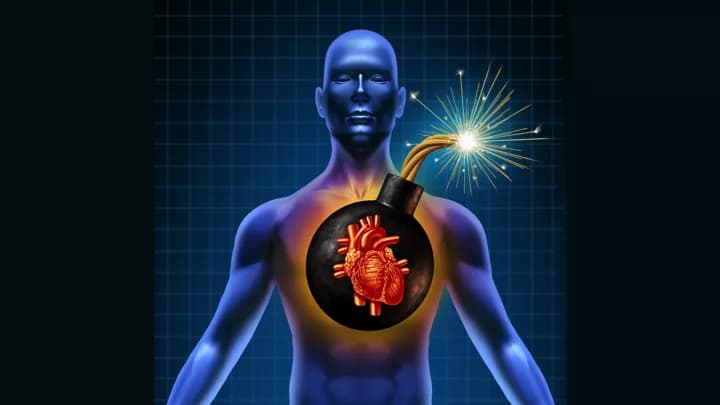IMPORTANT INFORMATION: Read This First
Heart Attacks should be evaluated by a trained medical professional, as soon as possible! DO NOT wait! Failure to obtain evaluation as soon as possible may result in serious injury or death. Call 911 (or your local emergency number) immediately, if you are experiencing a Heart Attack.
What is Heart Attack?
- A Heart Attack (Cardiac Arrest or Myocardial Infarction) is the damage caused to the muscles of the heart, due to a block in blood supply to the heart. It is a medical emergency
- Heart Attack usually occurs after age 45 years in men, and above 55 years in women. The condition may result in a sudden, severe, crushing, squeezing chest pain/discomfort
What are the Causes of Heart Attack?
The cause factors of a Heart Attack could include:
- High cholesterol
- Stress
- Obesity
- High blood pressure
- Heart disease (blocked blood vessels in the heart)
- Diabetes
- Tobacco use
- Hereditary factors
What are the Signs and Symptoms of Heart Attack?
The signs and symptoms of Heart Attack include:
- Chest pain, tightness, or discomfort
- Heartburn
- Nausea
- Shortness of breath
- Fainting
- Shoulder or neck pain
- Sweating
- Upper abdominal pain
- Mid-back pain, or pain between the shoulder blades
How is First Aid administered for Heart Attack?
First Aid tips for a Heart Attack:
- Call 911 (or your local emergency number)
- Relax
- Loosen tightfitting clothes (or dress)
- Take aspirin, unless you are allergic to it
- Take nitroglycerin, only if it is prescribed by a physician
- If the individual is not breathing or showing any movement, immediately start CPR (cardiopulmonary resuscitation)
Who should administer First Aid for Heart Attack?
Anyone in close proximity of the affected individual (or the individual himself/herself) can provide First Aid, but a medical professional is required for further treatment.
What is the Prognosis of Heart Attack?
The prognosis is dependent on the severity of Heart Attack.
How can Heart Attack be Prevented?
A few helpful tips to avoid/prevent a Heart Attack include:
- Quit smoking
- Have regular health check- ups
- Follow a healthy diet
- Try to avoid stress
- Take good control of your blood pressure, diabetes, and cholesterol levels
What are certain Crucial Steps to be followed?
The crucial steps to be followed in a Heart Attack include:
- Call 911 (or your local emergency number)
- Take aspirin, nitroglycerin, as prescribed
- Administer CPR, if there is a respiratory distress
Related Articles
Test Your Knowledge
Asked by users
Related Centers
Related Specialties
Related Physicians
Related Procedures
Related Resources
Join DoveHubs
and connect with fellow professionals


0 Comments
Please log in to post a comment.